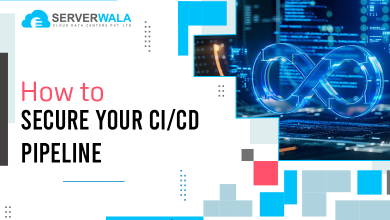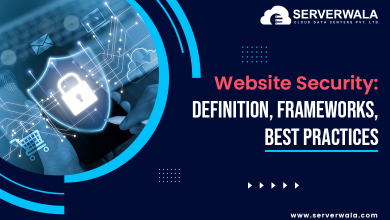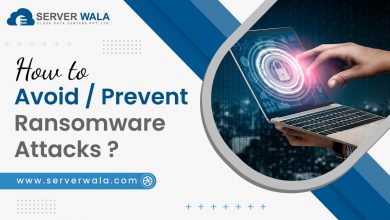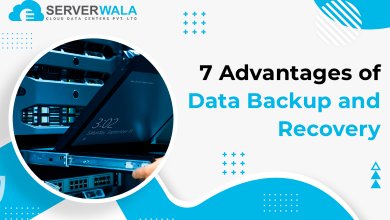6 Things to Consider Before Choosing a Data Backup Solution
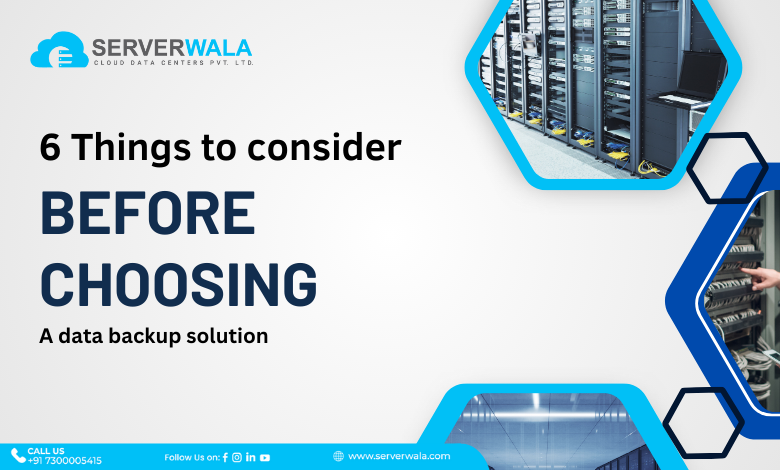
Introduction
In today’s data-driven landscape, safeguarding your information is paramount. Selecting the right data backup solution ensures that your business keeps up as resilient in front of unforeseen challenges. Before discussing the array of choices accessible, consider these six vital factors to make an informed decision.
In an era where data is the lifeblood of businesses, the importance of a powerful backup strategy must not be overlooked. The increasing frequency of cyber threats, hardware failures, and natural disasters underscores the importance of proactively securing your valuable assets. As businesses transition to digital platforms and cloud environments, the need for reliable data backup solutions becomes even more critical.
1. Sustain data security purposes
Begin your journey by defining clear data protection goals. Understand the type and volume of data your business generates, its criticality, and the desired recovery time objectives (RTOs) and recovery point objectives (RPOs). This foundational step will guide you in selecting a data backup solution that aligns seamlessly with your organization’s unique needs.
To delve deeper into this, assess the regulatory requirements governing your industry. Compliance with data protection regulations is integral, making data backup solutions for businesses not just a choice but a necessity. Identify sensitive information that requires special attention, ensuring that your chosen solution can adequately encrypt and protect this data. This is particularly vital in the era of cloud backup solutions enterprise, where data traverses networks and storage locations.
Consider the scalability of your data protection goals. As your business advances, so does your data footprint. Opt for a solution that accommodates this growth effortlessly. Scalability ensures that your chosen data backup solution remains robust and efficient, providing the necessary storage and processing power to meet your expanding requirements. The flexibility to adapt to changing data landscapes is a hallmark of reliable backup and recovery solutions.
Define RTOs that align with your business’s tolerance for downtime. Cloud backup solutions enterprises, with their inherent speed and accessibility, often offer a competitive edge in meeting these recovery objectives. Assess the geographical dispersion of your data and choose a backup solution that enables efficient recovery, even in the face of regional disruptions.
Furthermore, consider the financial implications of downtime. Calculate the potential losses associated with data unavailability and factor them into your data protection goals. A well-thought-out data backup solution not only guards against data loss but also mitigates financial risks, reinforcing the overall business continuity strategy.
2. Prioritize scalability
As your business evolves, so will your data requirements. Pick an option that evolves with you. Scalability ensures that your data backup solution remains effective, whether you are a small startup expanding rapidly or an established enterprise experiencing exponential data growth. Choose a solution that allows you to effortlessly scale up or down to meet your modifying necessities.
The capability to adapt to changing data landscapes is a strategic advantage. Scalability, often synonymous with cloud backup solutions enterprise, is crucial. Cloud-based solutions render a versatile as well as scalable infrastructure. This adaptability ensures that your data backup solution not only meets your current needs but is future-proofed against the uncertainties of data growth.
Consider the geographical dispersion of your business operations. Cloud backup solutions enterprises, with their distributed architecture, enable efficient data storage and retrieval across diverse locations. This is particularly valuable for businesses with multiple offices or a global footprint, ensuring that data is readily available wherever and whenever needed.
Moreover, as businesses increasingly embrace remote work, scalability becomes synonymous with accessibility. A robust data backup solution, especially those utilizing backup from cloud services, empowers remote teams by providing secure and scalable access to critical data. This accessibility is not just a convenience but a fundamental aspect of maintaining productivity and business continuity in a distributed work environment.
Evaluate the cost implications of scalability. While scalability is essential, it should be achieved without unnecessary financial strain. Cloud backup solutions enterprises often operate on a pay-as-you-go model, allowing businesses to scale their data storage and backup capabilities without incurring upfront infrastructure costs. This flexible pricing model aligns with the scalability needs of businesses, enabling them to optimize costs while ensuring effective data backup and recovery solutions.
3. Make a budget
Balancing functionality with financial constraints is crucial. Construct a realistic budget that involves ongoing maintenance pricing. Consider the long-term benefits of your chosen solution and evaluate its total cost of ownership. Striking the right balance ensures that your data is secure without straining your financial resources.
Creating a budget for data backup solutions involves a strategic evaluation of both short-term expenses and long-term value. While there might be a temptation to prioritize upfront costs, the landscape of data backup, particularly with the prevalence of cloud backup solutions enterprise, requires a holistic approach to budgeting.
Consider the scalability of your chosen solution. Scalability and budgeting are intertwined, especially in the context of cloud-based solutions. Cloud backup solutions enterprises often operate on a scalable pricing model, allowing businesses to pay for the storage and services they need, avoiding unnecessary upfront expenses. This aligns with the budgetary needs of businesses, providing flexibility as data requirements fluctuate.
Analyze the comprehensive cost of ownership (TCO) over the lifespan of the chosen data backup solution. Assessing TCO ensures that your budget is realistic. Cloud backup solutions enterprises, with their managed services and automatic updates, often present a favorable TCO compared to traditional on-premise solutions.
Consider the value of data security in your budgetary calculations. Data breaches and loss can result in substantial financial and reputational damage. The cost of a data breach far outweighs the expenses associated with a secure and reliable data backup solution. Therefore, view your budget as a strategic tool for fortifying your organization against potential data threats.
4. Ensure usability for business continuity
A data backup solution is only effective if it seamlessly integrates into your daily operations. Prioritize solutions with user-friendly interfaces and straightforward configuration processes. The goal is to empower your team to manage and recover data efficiently, minimizing downtime and ensuring business continuity in the face of unexpected disruptions.
Usability is the linchpin of effective data backup solutions for business continuity. The human element is critical in managing and recovering data seamlessly. Cloud backup solutions enterprises, with their intuitive interfaces and automated processes, contribute significantly to user-friendly experiences.
Consider the adaptability of your chosen solution to your team’s workflow. User-friendly data backup solutions integrate seamlessly into existing processes, reducing the learning curve and enabling swift adoption. This is particularly crucial in times of crisis, where a user-friendly interface can make the difference between a minor disruption and a prolonged downtime.
Explore solutions that offer centralized management, allowing your team to monitor and control data backup activities effortlessly. Cloud backup solutions enterprises often provide centralized dashboards, facilitating a comprehensive view of data operations across diverse environments. This centralized approach enhances control and contributes to the overall usability of the solution.
Investigate the training and support resources provided by the solution provider. A user-friendly data backup solution should be supported by robust training materials and responsive customer support. Cloud backup solutions enterprises, in particular, often offer extensive documentation and 24/7 support, ensuring that your team has the resources needed to navigate any challenges swiftly.
5. Support from the vendor
Select a vendor that views your success as a partnership. Analyze the support level and expertise offered by the vendor. Seek a host that renders responsive customer assistance, regular updates, and complete training resources. A reliable vendor ensures that you have the assistance needed to navigate any challenges and maximize the potential of your chosen data backup solution.
The vendor’s commitment to support is a cornerstone in the effectiveness of data backup solutions for business. Cloud backup solutions enterprises, known for their service-oriented approach, often prioritize customer success through continuous support and engagement. Regular updates to the software ensure that your solution remains aligned with evolving data protection needs.
Examine the responsiveness of the customer support provided by the vendor. Swift and efficient support is crucial in critical situations, such as data loss or system disruptions. Cloud backup solutions enterprises, with their 24/7 support structures, excel in providing timely assistance, contributing to the comprehensive reliability of the chosen solution.
Further, a vendor that invests in customer education through webinars, documentation, and training sessions enhances your team’s proficiency in managing the data backup solution. This commitment to training is particularly beneficial in harnessing the full potential of cloud backup solutions enterprise, where advanced features can be optimized through knowledge and expertise.
Evaluate the vendor’s track record in terms of picking up on industry trends. A forward-thinking vendor ensures that your data backup solution remains at the forefront of innovation, guaranteeing not only current relevance but also future-proofing against emerging challenges.
Also Read: Protecting Your Website from Cyber Threats
6. End-to-end protection
Comprehensive protection goes beyond mere backup. Look for a solution that provides end-to-end data protection, encompassing encryption during transit and at rest. This assures that your data is safe fur its entire lifecycle. A holistic approach to protection safeguards your business against potential vulnerabilities and enhances overall data integrity.
End-to-end protection is a critical aspect of modern data backup solutions for businesses, particularly in the context of cloud backup solutions enterprise. Encryption during transit and at rest assures that your confidential data is safeguarded from unauthorized accessibility or breaches. In the present era, where cyber issues are not uncommon, this robust protection layer is non-negotiable.
Evaluate the solution’s ability to adapt to evolving encryption standards. Cloud backup solutions enterprises often prioritize staying ahead of security protocols, ensuring that your data is protected using the latest encryption technologies. This adaptability is essential in maintaining a robust defense against emerging cybersecurity threats.
Consider the geographical dispersion of your data. A reliable backup and recovery solution, especially those leveraging backup from cloud services, should provide consistent end-to-end protection regardless of where your data resides.
Assess the solution’s approach to data integrity. Beyond securing your data, a comprehensive backup solution should enhance overall data integrity. This involves features like regular integrity checks, versioning, and error correction mechanisms. Cloud backup solutions enterprises often incorporate these elements, providing a comprehensive approach to safeguarding the accuracy and reliability of your stored data.
Conclusion
Choosing a data backup solution is pivotal for business resilience. By defining goals, prioritizing scalability, and managing budgets effectively, organizations align seamlessly with their unique needs. In the data-centric business landscape, where information is crucial, comprehensive data backup strategies, including cloud backup solutions enterprise, are imperative.
As businesses migrate to cloud environments, the integration of backup and recovery solutions becomes vital for scalability and accessibility. A well-thought-out backup strategy enhances overall cybersecurity, instilling confidence in stakeholders. Usability, vendor support, and end-to-end protection are crucial in decision-making, making data backup solutions for businesses integral for organizational resilience.
Moreover, the capability to recover swiftly is a competitive benefit. The right data backup solution, including backup from cloud services, safeguards against data loss and minimizes downtime. Safeguarding data today is an investment in future stability. Choose the right data backup solution now to fortify your business for a more secure and resilient tomorrow.

